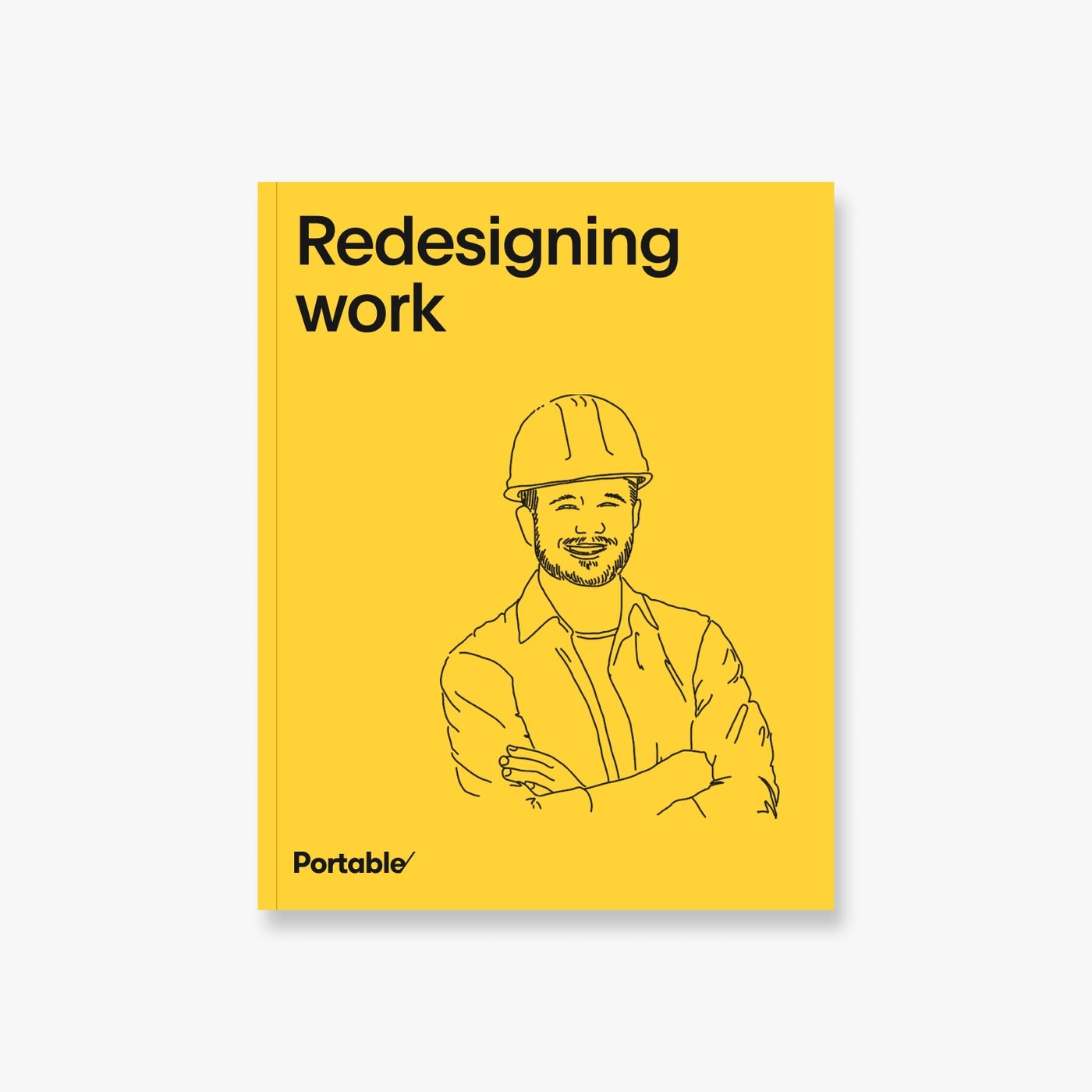Late last week, Portable presented at the 2016 Victorian Labor Conference, held in Melbourne, Australia.
The topic of the future becomes more and more pressing as technology continues to affect and alter our working lives.
Andrew Apostola talks real solutions — on what the future of work looks like for us all, especially in terms of workers’ rights, the gig economy and the role of government.
Putting More Resources Into Vocational Training
In the age of digital revolution, people need to adapt in order to prosper.
Did you know that in 2015, there were 1.6 million students enrolled in the government funded VET system?
Yet recently, the vocational education sector has been weakened by cuts to funding and the government’s plans for a vocational loans overhaul (see the stripping of the VET Student Loans Eligible Course List for approved art courses). What can we do to provide for people who seek these options?
In part, the government needs to recognise their role in providing the new working economy with skills.
Focus On Expanding Your Skill Set
The idea of a long-term career at one company is almost a daydream nowadays. Most people move through companies laterally as opposed to vertically, especially as careers aren’t as linear as they used to be. In order to do this with ease, workers can empower themselves by improving skills.
As new technologies emerge at a quick rate, people need to develop skills that are relevant to our working day reality. We have a superannuation scheme in place to take care of us during that final transition from work to retirement, but what about those other critical transition points in our careers like pregnancy or industry changes? Should we be looking at an additional pool of resources for people to use on transitions throughout their career?
Workers’ Rights Need To Be Protected
Attitudes around new digital platforms have resulted in the disruption of incumbent institutions, businesses and government.
The social contract we have with government is closely tied into notions of work. We’re expected to retire on our super savings instead of relying on an ever diminishing public purse. The discourse around healthcare during the 2016 Australia Federal Election focussed on our collective fear of paying for our healthcare in the future. “What if I’m sick?” is a question that unfortunately may need a new answer.
Our current day understanding of work supplies answers to these questions but this definition is obviously changing.
The gig economy may be scary, but can it work with the right protections in place? Can Airtasker provide insurance for both workers and those receiving services? Can we come up with ways to make these platforms — Uber, Airbnb, Airtasker, Task Rabbit, Shyp and Postmates — better suited to workers’ interests?
How Do I Get A Home Loan?
One issue we discussed at the Labor Conference that could lead to new policy was around housing affordability and ownership.
If we are moving to an economy where we don’t have full time work, but instead perform “tasks” for a living, then the way in which the banking sector is currently set up will make it difficult and expensive to get a home loan. Can we explore the kinds of conditions that could make it easier for individuals to prove they have sustainable income, in a world where sustainable income is nebulous? How could digital platforms help with this?
It’s not all doom and gloom, however.
While we can look at the new forms of work with distrust and disdain, we can also see opportunities for new forms of work. These digital disruptions just need to be accompanied with protective measures to our working rights.
As part of our continuing exploration of how technology is reshaping our world, Portable is hosting a series of forums on the Future of Work. Interested and want to get involved? Read more.
Download our report on the future of work
